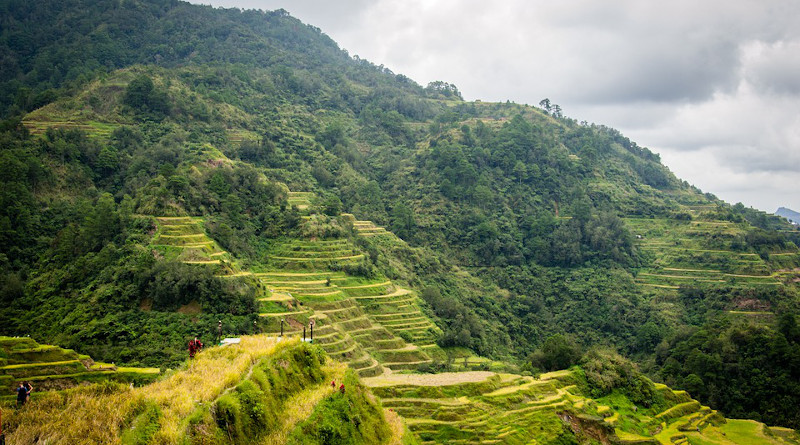Ancient Traditions And Biodiverse Crops – OpEd
In the north of the Philippines, the Ifugao rice terraces decorate the sides of the Cordilleras mountains. These magnificent terraces were created by the Ifugao ethnic group, a minority community that has lived in these mountains for thousands of years.
Here, the villagers plant an heirloom rice variety called “tinawon” meaning once per year. According to the International Rice Research Institute (IRRI), this variety of aromatic rice can only be found in three places around the world. These rice terraces are one of them. Although the tinawon rice is organically produced and can be sold for high value, it can be planted and harvested there only once annually (hence its name).
For many families, growing rice and other crops in the paddies is still their main source of food and income. Yet, with only one harvest of tinawon, many farmers cannot even grow enough rice to feed their own families. Because of this, some farmers are turning away from this heirloom variety to others, like the unofficially labelled “California” variety, which can be grown and harvested twice a year.
Soil fertility and climate change are also causing farmers to move away from traditional rice varieties. Concerned by the changing climate, farmers explained that in the past, they would have two or three typhoons per year. Today, up to 20 typhoons can occur in a year, and some native species are not well adapted to these changes. Yield is often less than in the previous years, challenging family food security.
The rice terraces, recognized as both a UNESCO World Heritage site and an FAO Globally Important Agricultural Heritage System (GIAHS), are reminders of ancient traditions and indigenous foods, but with changing times, these traditions are at risk of dying out.
Much of the younger generation is migrating out of the area, leaving the elders to maintain the area’s remarkable terraces. The knowledge and experience of how to maintain these structures have been passed down from generation to generation, but with the youth moving away, the elders are the last to know how to clean the terrace walls or to maintain the elaborate irrigation systems.
Some farmers, like Appo Limmat or Anna, as she goes by in English, are abandoning parts of their rice paddies altogether. Anna is an elderly widow and her children have moved to the city for work; they no longer help her with growing and harvesting the rice.
As an extra source of income, Anna now takes tourists to see the rice terraces. She is a believer in this industry as it helps provide her with a more stable income. Enchanted by the landscape and customs from the past, visitors can stay overnight and eat the traditional rice dishes in family homes or local restaurants. Some tourists are also beginning to help with the planting and harvesting of the paddies.
Although only a few!
If sustainably managed, tourism can provide an opportunity for development in mountain regions. Mountain products and services, such as tourism, have great potential to improve livelihoods and boost local economies. In addition, cultural heritage tourism can allow visitors to discover and support unique biodiversity, like heirloom rice, provided by mountains and mountain communities.
Through its participation in the Mountain Partnership Secretariat, FAO, together with Slow Food International and the Philippines’ Department of Tourism-Cordillera Administrative Region has developed a new pilot called “Food & Tourism for Mountain Development”, aimed at promoting linkages between high-value mountain products and ecotourism services. This pilot will support innovative producers and seek to uncover potential new products, creating and improving local livelihoods and promoting rural development in this region.
FAO, the Mountain Partnership Secretariat and Slow Food International have been working together since 2015 on fostering mountain economies and improving livelihoods with a voluntary labelling scheme for mountain products that supports small-scale producers in developing countries. This partnership can help rural people, like Anna, safeguard valuable traditions and biodiverse foods, while still making the living income necessary for a #ZeroHunger future

